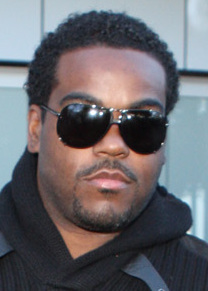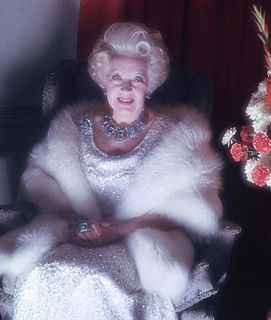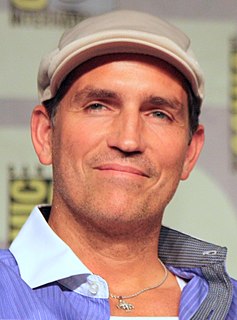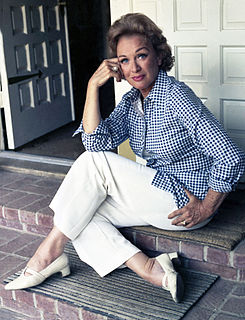A Quote by Marguerite Duras
For that's what a woman, a mother wants - to teach her children to take an interest in life. She knows it's safer for them to be interested in other people's happiness than to believe in their own.
Related Quotes
The mother must teach her son how to respect and follow the rules. She must teach him how to compete successfully with the other boys. And she must teach him how to find a woman to take care of him and finish the job she began of training him how to live in a family. But no matter how good a job a woman does in teaching a boy how to be a man, he knows that she is not the real thing, and so he tends to exaggerate the differences between men and women that she embodies.
Feminism has nothing at all to do with being 'feminine.' Feminine means accentuating the womanly attributes that make women deliciously different from men. The feminine woman enjoys her right to be a woman. She has a positive outlook on life. She knows she is a person with her own identity and that she can seek fulfillment in the career of her choice, including that of traditional wife and mother.
I like woman who doesn't necessarily care if other people like her. She is she who she is and figures people can take it or leave it. What I do like is a woman who has the guts to tell exactly as she feels. It's not appealing when a woman dresses to please a man. It's way more attractive if she has her own distinct style and wears what she feels best in.
Sometimes we adopt certain beliefs when we're children and use them automatically when we become adults, without ever checking them out against reality. This brings to mind the story of the woman who always cut off the end of the turkey when she put it in the oven. Her daughter asked her why, and her mother responded, "I don't know. My mother always did it." Then she went and asked her mother, who said, "I don't know. My mother always did it." The she went and asked her grandmother, who said, "The oven wasn't big enough."
The extraordinary woman depends on the ordinary woman. It is only when we know what were the conditions of the average woman's life - the number of children, whether she had money of her own, if she had a room to herself, whether she had help bringing up her family, if she had servants, whether part of the housework was her task - it is only when we can measure the way of life and experience made possible to the ordinary woman that we can account for the success or failure of the extraordinary woman as a writer.
The concept of 'Momism' is male nonsense. It is the refuge of a man seeking excuses for his own lack of virility. I have listened to many women in various countries, and I have never found a woman who willingly 'mothers' her husband. The very idea is repulsive to her. She wants to mother the children while they are young, but never their fathers. True, she may be forced into the role of mother by a man's weaknesses and childishness, and then she accepts the role with dignity and patience, or with anger and impatience, but always with a secret, profound sadness unexpressed and inexpressible.
Occasionally, on screen, Barbara [Stanwyck] had a wary, watchful quality about her that I've noticed in other people who had bad childhoods; they tend to keep an eye on life because they don't think it can be trusted. After her mother was killed by a streetcar, she had been raised in Brooklyn by her sisters, and from things she said, I believe she had been abused as a child. She had lived an entirely different life than mine, that's for sure, which is one reason I found her so fascinating. I think her early life was one reason she had such authenticity as an actress, and as a person.
A mother experiences more than one death, even though she herself will only die once. She fears for her husband; she fears for her children; again she fears for the women and children who belong to her children. ... For each of these-whether for loss of possessions, bodily illness, or undesired misfortune-she mourns and grieves no less than those who suffer.







































